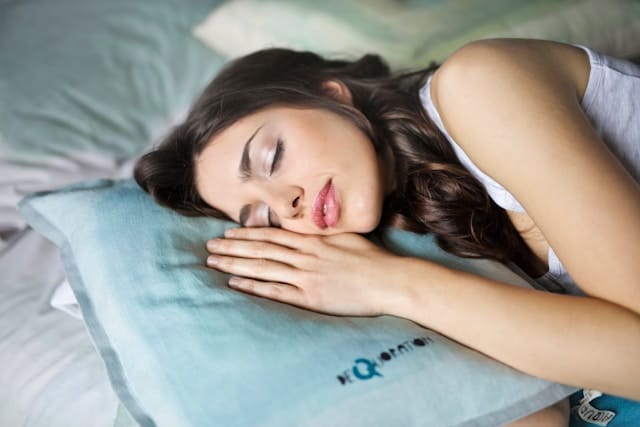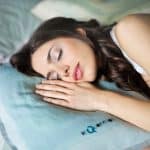In today’s fast-paced world, sleep is often compromised, leading to a multitude of health issues. A significant percentage of the population suffers from sleep disorders, with Sleep Apnea (OSA) being a common affliction. This condition disrupts the sleep process, especially the deep sleep and REM stages, proving detrimental to overall health.
Understanding the importance of deep sleep, the intricacies of various sleep stages, and the influence of Sleep Apnea on these stages is crucial. Armed with this knowledge, you can adopt techniques to optimize your sleep stages and enhance the quality of sleep despite this condition. This article will serve as a guide, providing information gleaned from reputable sources such as Google Scholar, Pubmed, NIH, NLM, NCBI, and more.
A lire aussi : How Does Guided Meditation Affect Postoperative Pain Management?
Understanding Sleep Stages and Their Importance
Sleep isn’t a uniform state of rest. It’s a dynamic process that involves various stages, each playing a different role in maintaining bodily functions and overall health. The two primary types of sleep are NREM (Non-Rapid Eye Movement) and REM (Rapid Eye Movement) sleep. Each night, our bodies cycle through these stages multiple times.
NREM Sleep
The first stage in the sleep cycle is the NREM stage, which includes three different phases – light sleep (Stage 1 and 2) and deep sleep (Stage 3). During the deep sleep stage, your body goes into recovery mode, repairing tissues, building bone and muscle, and strengthening the immune system.
A découvrir également : Can Low-Dose Aspirin Therapy Reduce the Risk of Preeclampsia in High-Risk Pregnancies?
REM Sleep
Following the NREM stage, the body transitions into REM sleep, signifying the brain’s increased activity. This stage is crucial for memory consolidation and learning.
Sleep Apnea and Its Effect on Sleep Stages
Sleep Apnea, particularly Obstructive Sleep Apnea (OSA), is a condition characterized by intermittent interruptions in breathing during sleep. These interruptions, known as apneas, can occur hundreds of times each night, leading to fragmented sleep and reduced time spent in the deep sleep and REM stages. This lack of quality sleep can have serious health repercussions, including cardiovascular diseases, cognitive dysfunction, and metabolic disorders.
Techniques to Optimize Deep Sleep and REM Sleep with OSA
Although OSA presents a significant challenge to achieving quality sleep, certain techniques can help optimize deep sleep and REM stages, mitigating some of the condition’s adverse effects.
Sleep Hygiene
Good sleep hygiene involves adopting habits that promote better sleep quality. This includes maintaining a consistent sleep schedule, creating a comfortable and quiet sleep environment, avoiding caffeine and alcohol close to bedtime, and engaging in relaxing activities before sleep.
Positive Airway Pressure (PAP) Therapy
One of the most effective treatments for OSA is Positive Airway Pressure (PAP) therapy. By delivering a continuous stream of air, PAP devices keep the airway open, reducing apneas, and allowing for more time spent in the deep sleep and REM stages.
Oral Appliances
Oral appliances designed to treat OSA can also improve sleep quality. These devices work by adjusting the position of the jaw or tongue to keep the airway open during sleep.
Weight Management
Research indicates that overweight and obese individuals have a higher AHI (Apnea-Hypopnea Index), an index that measures the severity of Sleep Apnea. Therefore, maintaining a healthy weight can help decrease the AHI and improve sleep quality.
Combating Sleep Apnea with Technology
In the digital age, we can leverage technology to guide us towards better sleep health. Various sleep tracking devices and applications can help monitor sleep stages, allowing individuals to understand their sleep patterns and make informed decisions about their sleep health.
Sleep Tracking Devices
These devices use sensors to monitor various aspects of sleep, including the duration of different sleep stages and the number of awakenings during the night. By providing this data, they can help highlight any significant sleep disturbances and track the effectiveness of various treatment methods.
Smartphone Applications
Several smartphone applications can guide you through relaxation techniques, meditation, and provide white noise or calming sounds to promote better sleep quality. Some of these applications also offer sleep tracking functionality, giving you a comprehensive overview of your sleep health right at your fingertips.
Adopting these techniques and incorporating technology can optimize your sleep stages and improve your overall health despite the challenges posed by Sleep Apnea. Remember, sleep is not a luxury but a necessity for maintaining good health. Strive to make quality sleep a priority in your life.
Lifestyle and Dietary Modifications for Deep Sleep Optimization
A significant factor that impacts sleep quality is lifestyle. Studies obtained from Google Scholar and PubMed NCBI suggest that various lifestyle modifications can help individuals with Sleep Apnea achieve better deep sleep and REM sleep.
Regular Physical Activity
One of the most effective lifestyle modifications is regular physical activity. A study published in PubMed NCBI highlighted that moderate-intensity aerobic exercise, such as brisk walking or cycling, can reduce the severity of OSA. Apart from reducing the Apnea-Hypopnea Index (AHI), regular exercise also helps to enhance sleep quality by promoting longer periods of deep sleep and REM sleep.
Balanced Diet
A balanced diet is linked to improved sleep quality. Consuming foods rich in tryptophan, an amino acid that helps produce serotonin – a neurotransmitter that plays a key role in the sleep cycle – can help improve the quality of sleep. Foods such as turkey, eggs, cheese, fish, and nuts are rich in tryptophan.
Limiting Alcohol and Caffeine
Alcohol and caffeine can interfere with sleep quality. Alcohol can reduce the time spent in the deep sleep and REM sleep stages, while caffeine, a stimulant, can make it difficult to fall asleep. Therefore, limiting the consumption of alcohol and caffeine can lead to improved sleep quality.
Conclusion
Sleep Apnea is a challenging condition that interferes with the sleep stages, particularly the crucial deep sleep and REM sleep phases. However, by understanding the importance and intricacies of these stages, individuals can adopt various techniques to optimize their sleep despite the presence of Sleep Apnea.
Adherence to good sleep hygiene, usage of PAP therapy or oral appliances, weight management, regular physical activity, a balanced diet, and limiting alcohol and caffeine consumption can significantly improve sleep quality. Furthermore, leveraging technology such as sleep tracking devices and smartphone applications can provide valuable insights into personal sleep patterns, guiding towards informed decisions for better sleep health.
Remember, attaining deep, restorative sleep isn’t just beneficial for those with Sleep Apnea; it’s a crucial element of overall health for everyone. As research progresses, we hope to uncover even more strategies for enhancing sleep quality, further demonstrating that sleep is not a luxury, but a necessity to maintain good health. Whether you’re navigating the complexities of Sleep Apnea or simply striving for better sleep, aim to make quality rest a priority in your life.






